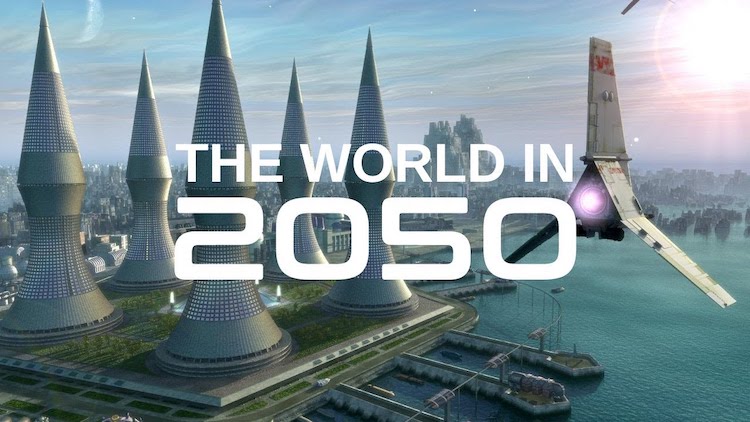
After discussing 2030 and beyond yesterday, I got into an interesting discussion about 2050 and beyond the other day. It started with looking back 25 years and looking forward 25.
Looking back 25 years, I realised that discussions of modular, object-oriented, service-based banking is now really old. I was having those discussions back in the 1990s. And yet that’s what Banking-as-a-Service, BaaS, is all about. It’s all about modular, object-oriented, service-based banking.
Then you think about it, and realise that a lot of what is happening today has been bubbling for decades.
The first online payment was made on August 11th, 1994 for a Sting CD. That’s back when Sting was cool, and his Fields of Gold are now our fields of dreams. No longer dreams but reality, and that reality is gold. Just ask Jeff Bezos and Jack Ma. More than this though is the question: has your company changed its reality?
If the networked world is a field of gold and the new reality is no longer a dream, how has your company changed its reality?
I talk a lot about companies that are cloud-based versus cloud-native, and know that it is the difference between a digital-immigrant and a digital-native. If you were born on the internet, you think a different way and yes, that is a generational thing.
In banking, it’s the generation that believes branches are important, regulations must be implemented in each nation and technology is a channel. These are the digital immigrants who see digital as an evolution, a channel, a project, a function. For those creating next generation banking, they also see branches as important, but purely for trust; that regulation must be implemented, except that they are the regulations of the citizens and network, not those of nations and governments; and that technology is core, not a channel.
A channel is something you add, not the heartbeat of life.
For me, digital has always been important and yet we need to ask: what is digital? When I was growing up, it was IBM; when I joined the workforce, it was Microsoft; when I became an adult, it was Google; when I became a digital adult, it was Facebook; when I became a pandemic adult, it was Zoom … what will it be tomorrow? Who knows?
What we clearly do know is that digital, the internet, the 5G network and the connectivity of all humanity is important, and this will continue. It’s unstoppable, even with energy issues, and it is reinventing everything.
In fact, it was interesting talking with a colleague the other day, who said that if you look back to that Sting CD sale in 1994, the first online transaction, we now do trillions of transactions every day around the world. According to Statista we made over USD$4 trillion of purchases online in 2020 with Turkey being leader of the pack. I personally would challenge that, as China has $17 trillion of payments passing through Alipay on its own but, whatever the numbers are, THEY ARE BIG. And they are getting bigger as we pivot from the main street to the delivery street during this pandemic.
But some of us knew that (Jeff Bezos), and some who copied the leaders’ thinking (Jack Ma) or built upon that thinking (Jack Dorsey), that we were pivoting from physical to digital. It’s led to the FinTech market boom, the online commerce boom, the working from home boom, the entertain yourself at home boom, and more.
All in a quarter of a century. What will the world be like in the next quarter of a century? What will the world be like in 2050?
Most likely living through a financial crisis, as usual.
The next major financial crisis will be in 2045 (presentation) The Finanser, March 2012
Lesson? We live with risk and deal with it.
In fact, there will probably have been, or in the throes of being, another major health crisis or a global war.
Lesson? We live with risk and deal with it.
We will have customers and people needing service on the Moon and Mars.
Is there Life on Mars? The Finanser, March 2021
Lesson? Build a bank for Life on Mars now, as that is the only thinking for building a truly digital bank.
And Quantum Computing will be here, ubiquitous and pervasive.
How quantum will change everything (including banking, money and security) The Finanser, March 2018
As well as truly decentralised internet services and finance.
Will DeFi destroy banking? The Finanser, October 2020
Lesson: change is the only constant
I could continue this list, but I’ll finish with that final point, as the biggest development of the next decade or two will combine Artificial Intelligence with a decentralised network to put citizens in control. The more we become multiplanetary, the more we will globalise, the less that borders and governments matter and the more that the network matters.
The question at the end therefore is: who controls the network?
As we move towards truly open banking and decentralised finance, the citizens control the network.
Well, either them or Skynet and, either way, banks won’t be in control and nor will most national governments.
Oh, but maybe there's a different view ...
Chris M Skinner
Chris Skinner is best known as an independent commentator on the financial markets through his blog, TheFinanser.com, as author of the bestselling book Digital Bank, and Chair of the European networking forum the Financial Services Club. He has been voted one of the most influential people in banking by The Financial Brand (as well as one of the best blogs), a FinTech Titan (Next Bank), one of the Fintech Leaders you need to follow (City AM, Deluxe and Jax Finance), as well as one of the Top 40 most influential people in financial technology by the Wall Street Journal's Financial News. To learn more click here...

